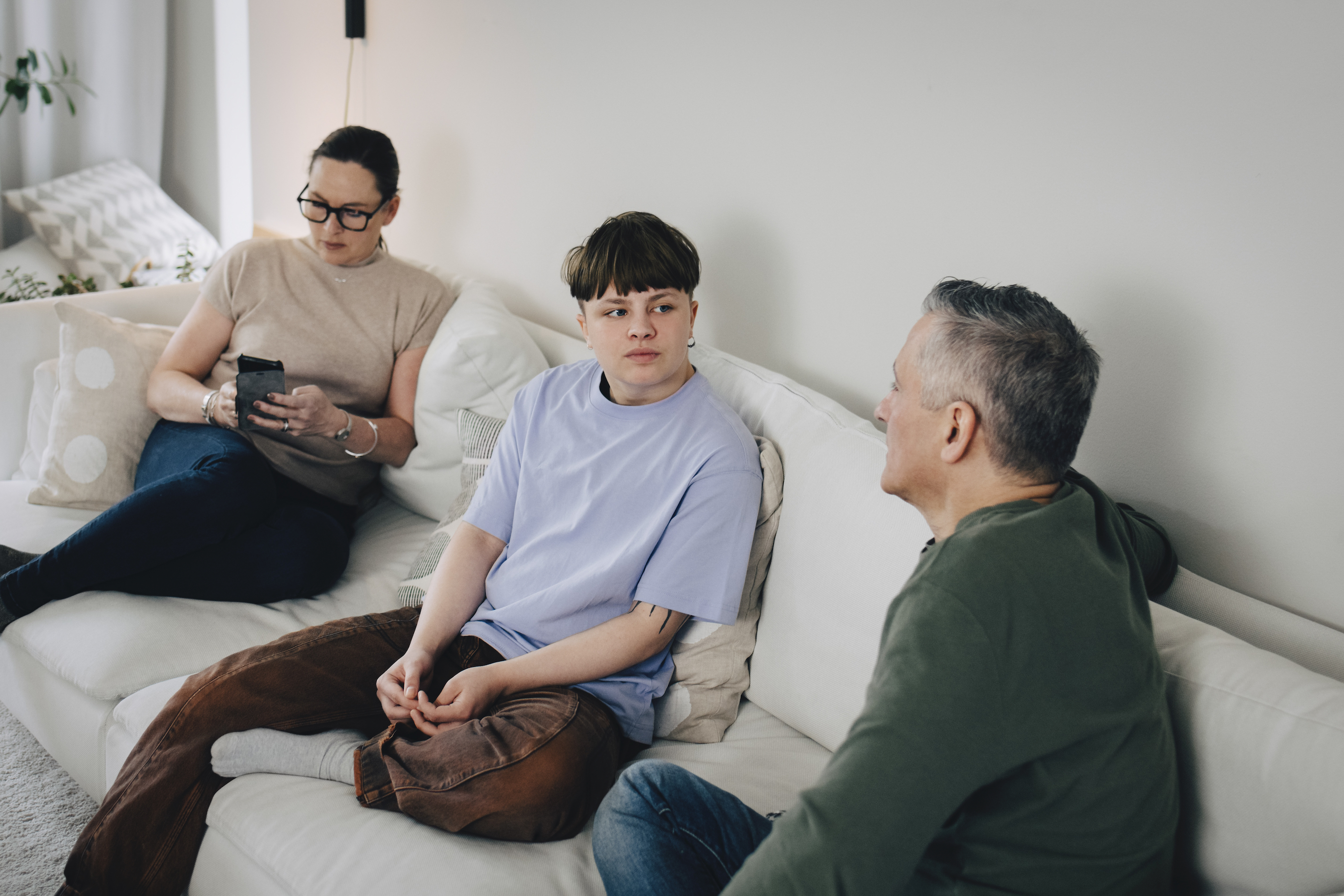
Health & Medicine
Why have nearly half of transgender Australians attempted suicide?

Transgender people are simply trying to live their best and most authentic lives, just like anyone else
Published 15 November 2021
Transgender and gender diverse people (commonly referred to as trans), identify with a different gender to what was presumed for them at birth, and may have a binary (male or female) or non-binary gender identity – they may for example identify as genderqueer or genderfluid.
Trans people aren’t a new phenomenon. There are many historical and cross-cultural examples of gender diversity, including in First Nations communities.

With growing visibility, social acceptance, and improved healthcare, increasing numbers of people are coming out as trans and some of them are seeking gender-affirming hormones and surgery.
As trans people, we are simply trying to live our best and most authentic lives. However, our existence is under constant scrutiny, shrouded in long-standing myths that frame us as deviant, troubled, and damaged by trauma.

Health & Medicine
Why have nearly half of transgender Australians attempted suicide?
In this constant battle against anti-trans misinformation, discrimination, vilification, and violence, events like the annual Transgender Awareness Week (November 13 – 19) are a vital opportunity to increase visibility and celebrate the trans community. The week culminates in Transgender Day of Remembrance (November 20), a day to commemorate the loss of trans lives to anti-trans violence.
Much of the discrimination and violence inflicted upon trans people are founded on myths. These myths stem from a history of pathologising trans people, and are consistently reinforced by sensationalism and skewed representation in mainstream media.
Being trans is a part of the natural spectrum of human diversity. In recent years, the World Health Organisation, American Psychiatric Association and many other leading international organisations have clearly stated that being trans is not a mental health disorder. There is nothing inherent to being trans that makes a person more likely to experience poor mental health.

However, as one of the most socially and medically marginalised groups in Australian society, poor mental health is a common and unsurprising outcome. Our research shows that 73 per cent of trans people report a lifetime diagnosis of depression and a staggering 43 per cent have attempted suicide. High rates of unemployment, physical assault and institutional discrimination (including denial of healthcare) all contribute to an increased risk of suicide.
For some trans people, hormones and surgery are a vital part of affirming their gender and feeling comfortable in their bodies. However, not all trans people desire hormones and surgery. Some will have one without the other, while others will forgo medical treatments altogether.

Health & Medicine
Gender bias skewing surgeon referrals
Hormones and surgery can also be difficult to access. Despite the incredibly positive impact gender-affirming surgeries can have, they aren’t covered by the Medicare Benefits Schedule, involve prohibitively large out-of-pocket costs, and are simply out of reach for many trans people.
Children and adolescents can have a strong sense of their gender from an early age. The Australian Standards of Care and Treatment Guidelines for trans and gender diverse children and adolescents make it very clear that treatment for trans children typically involves small and largely reversible steps.
This may include supportive counselling and trying out different clothing, names, or pronouns. Supporting a child in these steps can greatly reduce their distress, depression, anxiety and increase self-worth.

The onset of puberty can be enormously stressful for trans young people. ‘Puberty blockers’ are sometimes used to temporarily suppress the onset of puberty, giving adolescents time to develop emotionally and cognitively before making decisions about hormone use. The vast majority of trans youth are entirely capable of making informed decisions about their own healthcare and medical treatment.
Delaying access to puberty blockers to adolescents who desire it, can have tremendous psychological costs, including an increase in self-harm or suicide risk.

Health & Medicine
Is treating obesity the future of managing type 2 diabetes?
Contrary to the common belief that many children can easily access invasive medical treatment, it is difficult to access gender-affirming medical treatment in Australia and involves multiple assessments with multidisciplinary teams with long wait times. The Australian Standards of Care advise delaying genital surgery until adulthood.
Withholding gender-affirming treatment isn’t a neutral option and may be harmful. However, when trans children and adolescents are supported, they can thrive.
Very few trans people regret gender-affirming hormones and surgery, with one longitudinal study indicating a regret rate of less than 0.5 per cent. Other than the low rates of regret and detransition, access to gender-affirming care for those who desire it, improves mental health and quality of life.

The promotion of regret and detransition narratives serves to re-pathologise trans people and violates their autonomy to make decisions about their bodies.
The perpetuation of myths that can easily be debunked is akin to lies, and untruths that fuel discrimination and violence, presenting an ongoing risk to the safety and wellbeing of trans people.

Health & Medicine
Data protection is a mental health issue for young people
We have lived this firsthand.
Education and fair/accurate representations of trans people are key to building a safe, accepting, and more inclusive society.
Like everyone else, trans people just want to be seen, understood, and treated with respect and live a life free of discrimination and violence.
Lifeline is available on 18 11 14 if you or anyone you know needs help or support.
QLife is a LGBTIQA+-specific service available on 1800 184 527, or webchat.
DISCHARGED is a peer support group for trans and gender diverse people.
Banner: Getty Images